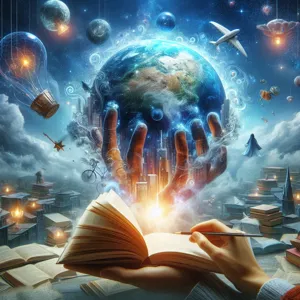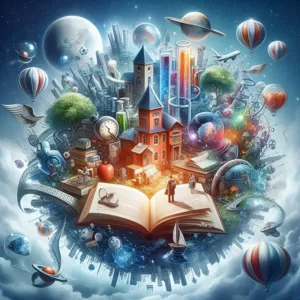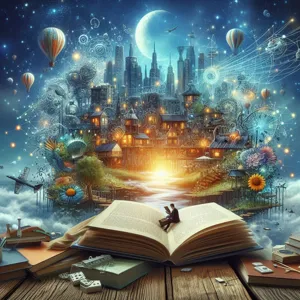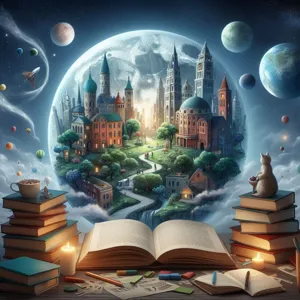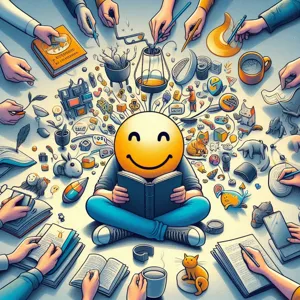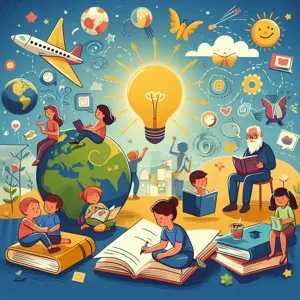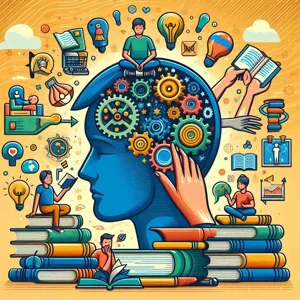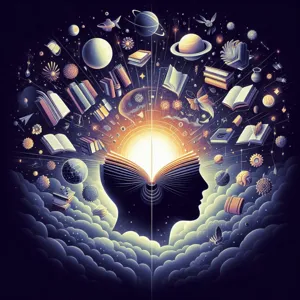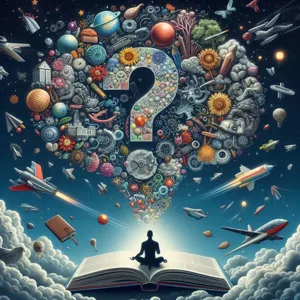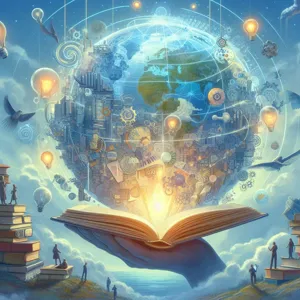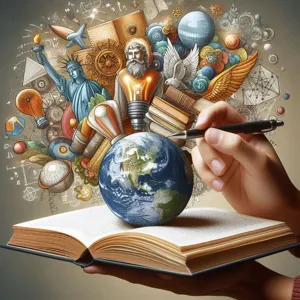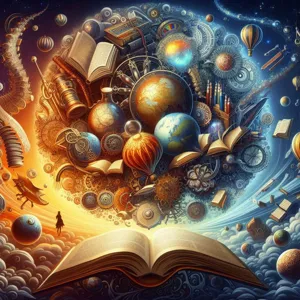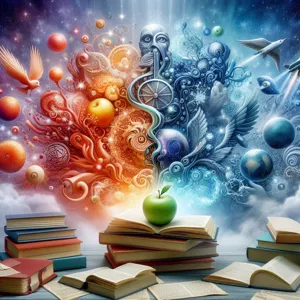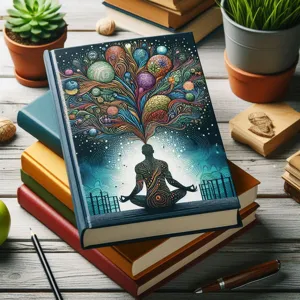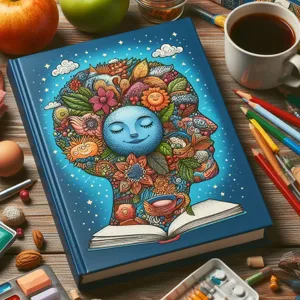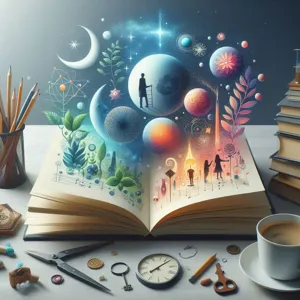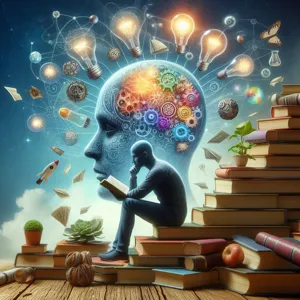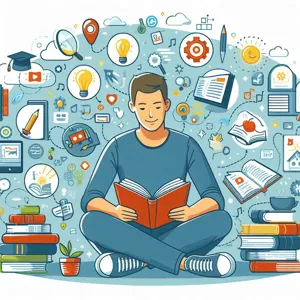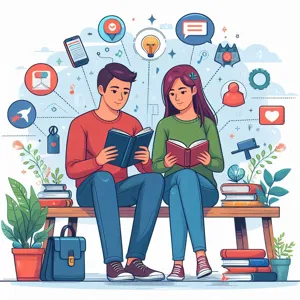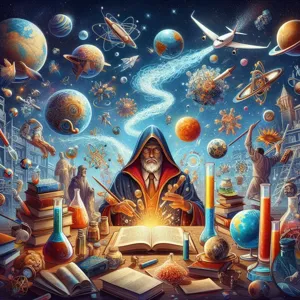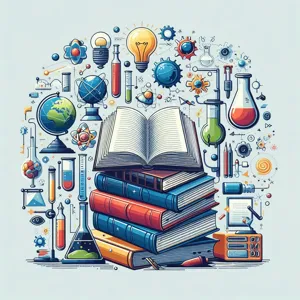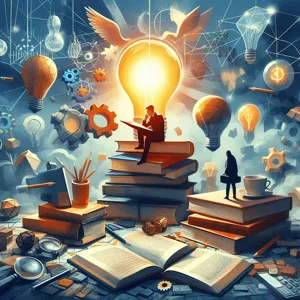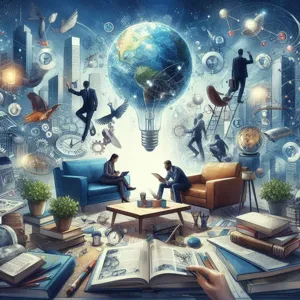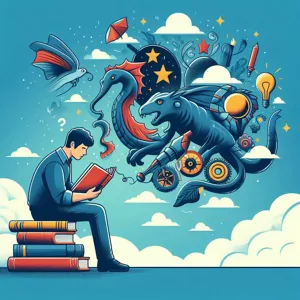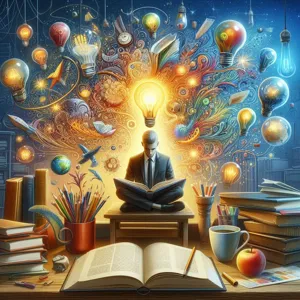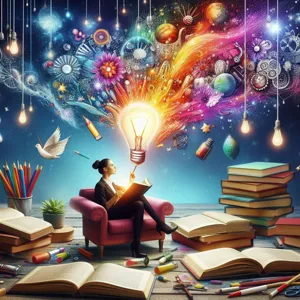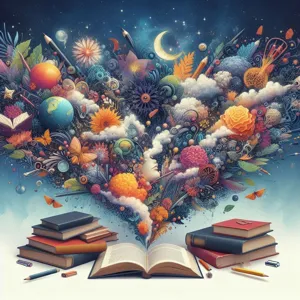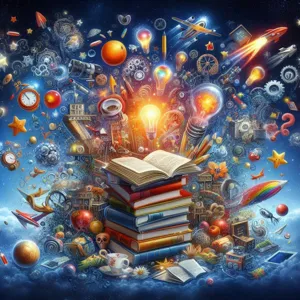In an increasingly interconnected world, mastering a new language has become more than just a skill; it’s a gateway to understanding diverse cultures, broadening your horizons, and enhancing your career opportunities.
whether you’re a polyglot or a complete novice, the journey to fluency can be both exhilarating and challenging. To make this journey smoother and more enjoyable, we’ve curated a list of the top 10 must-read books that will not only help you learn new languages but also enrich your vocabulary in ways you never thought possible. From engaging stories and practical exercises to insightful linguistic theories, these titles offer a treasure trove of knowledge for language enthusiasts of all levels. Join us as we explore these invaluable resources that can transform your language-learning experience, spark your curiosity, and ultimately help you communicate with confidence in any tongue!
1. Introduction: The Importance of Reading in Language Learning
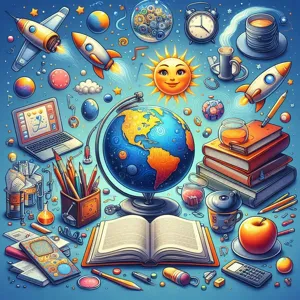
When it comes to mastering a new language, immersing oneself in the written word can be one of the most effective strategies. Reading not only enhances vocabulary but also deepens understanding of grammar, idiomatic expressions, and cultural nuances that are often overlooked in traditional language courses. As you flip through the pages of a book, you engage with the language in a way that listening or speaking alone cannot achieve. Each sentence offers a new opportunity to encounter unfamiliar words and phrases, allowing you to see them in context—which is crucial for retention.
Moreover, reading fuels your imagination and provides a window into the thoughts and lives of others, making the language feel more alive and accessible. Whether you’re delving into a gripping novel, an informative non-fiction work, or even a well-crafted article, the exposure to varied styles and tones will enrich your own language skills. You’ll begin to notice patterns, pick up on subtleties, and develop a more robust comprehension.
Additionally, reading can be tailored to your interests and proficiency level. Beginners can start with children’s books or graded readers, while advanced learners may dive into literary classics or contemporary works. This adaptability not only keeps you engaged but also helps you progress at your own pace.
In this blog post, we will explore the top 10 must-read books that cater to language learners of all levels, each one offering unique insights and invaluable vocabulary expansion opportunities. Prepare to turn the page and embark on a journey that will not only enhance your language skills but also ignite your passion for reading in a new language.
2. Criteria for Selecting Effective Language Mastery Books
When it comes to selecting effective language mastery books, the criteria you choose can significantly impact your learning journey and vocabulary acquisition. Here are some essential factors to consider:
1. **Clarity and Structure**: The best language books are organized in a way that facilitates understanding. Look for resources that break down complex grammar rules and vocabulary into digestible sections. A clear structure helps you follow along without feeling overwhelmed, allowing you to build your language skills incrementally.
2. **Relevance to Your Goals**: Consider your specific language learning objectives. Are you aiming to improve conversational skills, expand your professional vocabulary, or prepare for an exam? Choose books that align with your goals, focusing on practical language usage and relevant contexts that resonate with your personal or professional life.
3. **Engaging Content**: Language learning should be enjoyable! Opt for books that incorporate engaging narratives, relatable scenarios, or cultural insights. Interactive elements, such as exercises, quizzes, and real-world examples, can make your study sessions more dynamic and enjoyable, keeping you motivated throughout the process.
4. **Authenticity**: Look for resources created by native speakers or experienced language instructors. Authentic materials often provide more accurate representations of the language, including idiomatic expressions, colloquialisms, and pronunciation tips that are essential for mastering a new language.
5. **Supplementary Resources**: Effective language mastery books often come with additional resources, such as audio files, online communities, or companion websites. These tools can enhance your learning experience by providing opportunities for listening practice, interactive exercises, and peer support as you navigate the intricacies of a new language.
6. **Positive Reviews and Recommendations**: Before making a purchase, check reviews and recommendations from other learners. Insights from individuals who have successfully used the book can provide valuable information about its effectiveness and practicality. Platforms like Goodreads or language learning forums can be great places to gather feedback.
By carefully evaluating these criteria, you can choose language mastery books that not only enrich your vocabulary but also make the learning process enjoyable and fulfilling. With the right materials in hand, you’ll be well on your way to mastering a new language and unlocking new opportunities for communication and connection.
3. Book 1: “Fluent Forever” by Gabriel Wyner
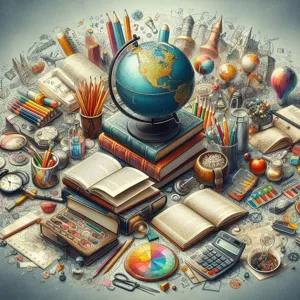
“Fluent Forever” by Gabriel Wyner is a transformative guide that has captivated language learners around the globe. In this insightful book, Wyner shares his unique approach to mastering new languages, drawing from his own experiences as a polyglot. The central premise revolves around the idea that traditional language learning methods often fall short, focusing too heavily on grammar and rote memorization. Instead, Wyner emphasizes the importance of pronunciation, context, and the use of spaced repetition to enhance vocabulary retention.
One of the standout features of “Fluent Forever” is its innovative use of imagery and personal associations to create powerful mental connections with new words. Wyner encourages readers to develop personalized flashcards, incorporating images and sounds that resonate with them on a deeper level. This technique not only makes learning more enjoyable but significantly boosts recall, allowing learners to access their vocabulary with ease.
Throughout the book, Wyner also provides practical tips on how to immerse oneself in a new language, suggesting resources such as films, music, and conversation partners. His enthusiasm for language learning is infectious, inspiring readers to adopt a proactive approach to their studies.
Whether you’re starting your language journey or looking to refine your skills, “Fluent Forever” serves as an invaluable resource. It not only equips you with effective strategies but also instills a sense of confidence that you can become fluent in any language you choose. With Wyner’s guidance, the path to mastering a new language becomes not just a goal, but an exciting adventure.
4. Book 2: “The Vocabulary Builder Workbook” by Chris Lele
“The Vocabulary Builder Workbook” by Chris Lele is a treasure trove for language learners eager to expand their lexicon and enhance their linguistic prowess. This engaging workbook is not just a collection of words; it’s a well-structured resource that combines innovative teaching methods with practical exercises designed to boost vocabulary retention and usage.
What sets this workbook apart is its approach to learning vocabulary in context. Lele introduces readers to more than 1,400 essential words, each thoughtfully organized by themes and usage. As you progress through the chapters, you’ll find clear definitions, illustrative examples, and a variety of exercises that challenge you to apply what you’ve learned. This interactive format encourages active engagement, which is crucial for memory retention.
Moreover, “The Vocabulary Builder Workbook” incorporates fun and effective strategies such as mnemonic devices and visual aids, making it easier to remember complex terms. Whether you’re preparing for an exam, enhancing your professional communication, or simply looking to enrich your everyday conversations, this workbook serves as an invaluable companion on your language-learning journey.
What’s more, Lele’s approachable writing style and relatable anecdotes make the learning process enjoyable and less daunting. With “The Vocabulary Builder Workbook” in hand, you’ll not only master new words but also gain the confidence to use them fluently and effectively, paving the way for a more vibrant and articulate expression in your new language.
5. Book 3: “Word Power Made Easy” by Norman Lewis
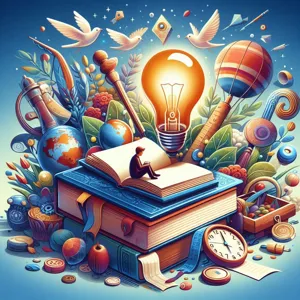
“Word Power Made Easy” by Norman Lewis is a timeless classic that has been helping language learners expand their vocabulary for decades. This engaging vocabulary-building program is not just about memorizing lists of words; it’s a comprehensive approach that integrates etymology, exercises, and practical usage to make the learning process both enjoyable and effective.
The book is structured into easy-to-digest sections that guide readers through a series of word-building exercises. Each chapter focuses on a specific set of words derived from common roots, prefixes, and suffixes, allowing learners to unlock the meanings of numerous words with a single concept. For example, by understanding the root “aud,” which means “to hear,” readers can effortlessly connect it to words like “audible,” “auditory,” and “audience.” This method not only enhances vocabulary but also deepens comprehension of the language as a whole.
What sets “Word Power Made Easy” apart is its interactive format. Lewis includes quizzes and review sections that challenge readers to actively engage with the material, reinforcing their learning and making it stick. The book is filled with entertaining anecdotes, mnemonic devices, and real-world examples that make the learning process relatable and fun.
Moreover, it goes beyond just building vocabulary. The book emphasizes the importance of using new words in context, encouraging readers to incorporate them into their daily conversations and writing. This practical application solidifies retention and confidence in using newfound vocabulary.
Whether you’re a student preparing for standardized tests, a professional looking to enhance your communication skills, or simply a language enthusiast eager to expand your lexicon, “Word Power Made Easy” is an invaluable resource. Its systematic approach and enthusiastic tone make it more than just a vocabulary book—it’s a gateway to mastering language in a way that feels both achievable and rewarding. Dive into this book, and watch as your vocabulary flourishes and your language skills soar!
6. Book 4: “The Complete Language Pack” by Various Authors
### 6. Book 4: “The Complete Language Pack” by Various Authors
“The Complete Language Pack” is an invaluable resource for anyone serious about mastering a new language. This comprehensive guide, curated by a team of renowned linguists and educators, offers a multifaceted approach that combines essential vocabulary, grammar rules, and cultural insights, making it an indispensable tool for learners at all levels.
One of the standout features of this book is its structured layout. Each chapter is designed to cover specific themes, such as travel, business, and everyday conversation, allowing learners to immerse themselves in practical contexts right from the start. The vocabulary sections are accompanied by engaging exercises that reinforce learning through repetition and application, ensuring that words and phrases stick in your mind long after you close the book.
What sets “The Complete Language Pack” apart is its integration of multimedia elements. Many editions come with access to online resources, including audio pronunciations and interactive quizzes that further enhance the learning experience. This blend of traditional and modern teaching methods caters to different learning styles, whether you prefer reading, listening, or engaging in hands-on activities.
Additionally, the book delves into the cultural nuances of the language, providing learners with a richer understanding of how language and culture intertwine. This aspect is crucial for those looking to engage more fully with native speakers and navigate social situations with confidence.
Overall, “The Complete Language Pack” is not just a textbook; it’s a holistic learning experience that equips you with the tools you need to succeed in your language journey. Whether you’re preparing for a trip abroad, advancing your career, or simply indulging in a personal passion for languages, this book will be a steadfast companion on your path to fluency.
7. Book 5: “Memrise: The Language Learner’s Secret Weapon”
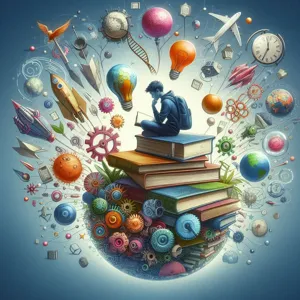
**Book 5: “Memrise: The Language Learner’s Secret Weapon”**
In the ever-evolving landscape of language learning, “Memrise” stands out as a game-changer for both beginners and seasoned polyglots. This book, intricately woven with the principles behind the popular app of the same name, dives deep into the art and science of memorization. It offers readers a treasure trove of strategies designed to enhance vocabulary acquisition and retention, making it an essential read for anyone serious about mastering a new language.
What sets “Memrise” apart is its emphasis on the power of engaging, interactive learning. The book introduces the concept of “mnemonics”—vivid, memorable associations that help cement words and phrases in your mind. Through colorful anecdotes and practical exercises, readers learn how to create their own memory aids, transforming daunting vocabulary lists into playful challenges that stimulate the brain.
Moreover, the authors delve into the psychological aspects of language learning, emphasizing the importance of spaced repetition and context. By understanding how our brains process and recall information, readers can tailor their study habits to maximize efficiency. This approach not only makes learning more enjoyable but also fosters a deeper connection with the language itself.
Another highlight of “Memrise” is its focus on community and collaboration. It encourages learners to connect with others, share insights, and even compete in friendly challenges. This social aspect adds an element of accountability and motivation, ensuring that you stay committed to your language-learning journey.
Whether you’re looking to solidify your existing skills or embark on a new linguistic adventure, “Memrise: The Language Learner’s Secret Weapon” equips you with the tools, techniques, and inspiration necessary to elevate your language mastery. With its blend of scientific insight and practical advice, this book is more than just a guide; it’s a passport to a world of words waiting to be explored.
8. Book 6: “Language Hacking” Series by Benny Lewis
The “Language Hacking” series by Benny Lewis is an absolute gem for anyone eager to embark on their language-learning journey with a fresh perspective. With a reputation as a polyglot and a passion for making language acquisition accessible, Lewis breaks down the often-daunting process into manageable, enjoyable steps.
In his engaging style, Lewis emphasizes that the key to mastering a new language lies not just in memorizing vocabulary lists or slogging through grammar rules, but in embracing a conversational approach right from the start. His books are filled with practical tips and techniques that encourage learners to leap into speaking, even if they only have a handful of words at their disposal.
The series is structured around various languages, each tailored to the unique challenges and nuances of that specific tongue. From Spanish to Japanese, Lewis provides readers with strategic insights and real-life examples, making the material feel relatable and applicable. His focus on authentic communication ensures that learners not only expand their vocabulary but also gain the confidence to use it in real-world situations.
What sets the “Language Hacking” series apart is Lewis’s commitment to demystifying language learning. He shares personal anecdotes, motivational stories, and even common pitfalls to avoid, making the journey feel less isolating and more like a shared adventure. Whether you’re a complete novice or looking to refine your skills, this series equips you with the tools to transform your language learning into a fun and rewarding experience. By the end of each book, you’ll be inspired to put your newfound vocabulary to the test and connect with others, proving that fluency is not just a goal, but a vibrant journey filled with discovery and joy.
9. Book 7: “Easy French Step-By-Step” by Myrna Bell Rochester
**Book 7: “Easy French Step-By-Step” by Myrna Bell Rochester**
“Easy French Step-By-Step” is an exceptional resource for anyone looking to master the French language with clarity and confidence. Myrna Bell Rochester’s approach is refreshingly straightforward, making it an ideal choice for learners of all levels, from absolute beginners to those looking to refine their skills.
This book breaks down the complexities of French grammar into digestible segments, guiding readers through the language in a logical, progressive manner. Each chapter is meticulously structured, with clear explanations that build on previous lessons, facilitating a natural learning curve. You’ll find that grammar concepts are introduced gradually, allowing you to practice and internalize each rule before moving on to the next, making the learning process feel less daunting and more achievable.
Beyond grammar, Rochester places a strong emphasis on vocabulary acquisition. The book is filled with practical exercises that encourage you to apply what you’ve learned, reinforcing your knowledge and boosting your confidence in using the language. With a focus on real-world conversation skills, you’ll find useful phrases and expressions that are applicable in everyday situations, making it easier to navigate social interactions and engage with native speakers.
Moreover, the book includes a variety of engaging exercises, quizzes, and review sections that challenge you to think critically about the language. This interactive aspect not only enhances retention but also makes the learning experience enjoyable. Whether you’re studying independently or using it alongside a language course, “Easy French Step-By-Step” provides a solid foundation for mastering French and expanding your vocabulary in a systematic and enjoyable way.
In a world where effective communication is key, this book stands out as a must-read, offering you the tools you need to unlock the beauty of the French language and connect with a rich cultural heritage. Dive into this book, and watch your confidence soar as you navigate the nuances of French with ease!
10. Book 8: “Practice Makes Perfect” Series by Various Authors
The “Practice Makes Perfect” series is a treasure trove for language learners, offering a wealth of resources tailored to various languages, from Spanish and French to Italian and German. Each book in the series is designed with a clear focus on practical application, making it an essential addition to your language-learning toolkit.
What sets this series apart is its emphasis on interactive exercises and real-world usage. Each volume contains a rich array of practice problems that reinforce grammar, vocabulary, and conversation skills. The structured approach allows learners to tackle language concepts progressively, ensuring a solid foundation is built before moving on to more challenging material.
One of the standout features of the “Practice Makes Perfect” series is its user-friendly layout, which includes clear explanations, helpful tips, and engaging exercises that encourage active participation. Readers can expect to encounter fill-in-the-blank activities, sentence transformation tasks, and even fun quizzes that make learning feel less like a chore and more like a game.
Moreover, the series caters to learners of all levels, from beginners to advanced speakers, providing targeted content that meets the specific needs of each stage. Whether you’re looking to sharpen your verb conjugations, expand your vocabulary, or master idiomatic expressions, you’ll find the right resources within this series.
Incorporating the “Practice Makes Perfect” series into your language study routine not only boosts your vocabulary but also enhances your overall fluency. By practicing consistently, you’ll find that each book serves as both a guide and a companion on your journey to mastering a new language, making it a must-read for anyone serious about language acquisition.
11. Book 9: “The Art of Language Invention” by David J. Peterson
David J. Peterson’s “The Art of Language Invention” is a captivating exploration into the world of constructed languages, or conlangs, that will ignite the imagination of any language learner. Peterson, renowned for his work on languages for popular television series like “Game of Thrones” and “Defiance,” provides readers with a unique perspective on the mechanics of language creation while offering valuable insights that can be applied to mastering any new language.
In this enlightening book, Peterson demystifies the intricacies of phonetics, grammar, and syntax by breaking down how languages are structured and how they evolve. He shares his extensive knowledge through engaging anecdotes, practical exercises, and detailed examples, making the complex world of linguistics accessible and enjoyable.
One of the most compelling aspects of “The Art of Language Invention” is its focus on the creative process involved in language development. Peterson encourages readers to not only learn new languages but to think like a linguist. By understanding how languages are constructed, learners can better appreciate the nuances of the languages they study and improve their overall vocabulary retention.
Moreover, this book serves as a reminder of the beauty and diversity of language itself. Peterson highlights the cultural significance behind each constructed language, emphasizing that language is not merely a tool for communication but a reflection of identity and heritage. This deeper understanding can motivate learners to engage with their target language on a more personal level.
Whether you are a seasoned polyglot or just starting your language journey, “The Art of Language Invention” will inspire you to delve into the intricacies of languages and enhance your vocabulary in unexpected ways. It’s a must-read for anyone eager to discover the art and science behind the languages we speak and those waiting to be invented.
12. Book 10: “How to Learn Any Language” by Barry Farber
**Book 10: “How to Learn Any Language” by Barry Farber**
Barry Farber’s “How to Learn Any Language” is a treasure trove for language enthusiasts seeking to master new tongues with confidence and efficiency. Drawing from his extensive experience as a polyglot who speaks over a dozen languages, Farber offers readers an engaging blend of practical advice and personal anecdotes that make the journey of language learning both accessible and enjoyable.
What sets this book apart is Farber’s unique approach to language acquisition, emphasizing that anyone can learn a new language, regardless of age or background. He breaks down complex concepts into simple, actionable steps, providing a roadmap for learners at any stage. Farber’s infectious passion for languages shines through every page, motivating readers to embrace challenges and develop a genuine love for the learning process.
One of the standout features of the book is its focus on the importance of immersion and the use of real-life experiences to enhance language skills. Farber encourages learners to engage with native speakers, watch foreign films, and consume media in the target language, thereby creating a rich tapestry of context that aids retention and understanding. His practical tips on utilizing flashcards, language apps, and online resources are invaluable for modern learners navigating the digital landscape.
Moreover, Farber dives deep into the psychology of language learning, addressing common fears and misconceptions that often hold people back. By promoting a mindset of curiosity and resilience, he empowers readers to overcome obstacles and view mistakes as essential steps in the learning process. This positive perspective is particularly refreshing and serves as a reminder that fluency is a journey, not a destination.
In “How to Learn Any Language,” Barry Farber equips readers with not just the tools, but also the inspiration to embark on their language-learning adventures. Whether you’re a complete beginner or looking to refine your skills, this book is a must-read for anyone eager to broaden their linguistic horizons and unlock the doors to new cultures and connections. With Farber’s guidance, mastering a new language becomes an attainable and exciting endeavor that can enrich your life in countless ways.
13. Tips for Maximizing Your Reading Experience
Reading in a new language can be both exhilarating and challenging, and maximizing your reading experience is essential to truly absorb the material and expand your vocabulary. Here are some effective tips to enhance your journey through the pages:
1. **Choose the Right Material**: Start with texts that match your current skill level. Whether it’s children’s books, short stories, or simple articles, selecting appropriate material keeps you engaged and less overwhelmed. As you progress, gradually increase the complexity of your reading.
2. **Active Reading Techniques**: Don’t just passively read; engage with the text. Highlight new words, take notes, and jot down questions or thoughts. This active engagement helps reinforce new vocabulary and improves comprehension.
3. **Use a Dictionary**: Keep a dictionary handy, whether it’s a physical book or a digital app. Look up unfamiliar words as you read, but try to guess their meaning from context first. This practice will help strengthen your understanding of language nuances.
4. **Read Aloud**: Hearing the words as you read can significantly improve your pronunciation and fluency. Reading aloud helps you internalize sentence structures and rhythm, making it easier to recall when speaking.
5. **Set Achievable Goals**: Break your reading into manageable chunks. Instead of committing to an entire chapter, aim for a few paragraphs or pages each day. Celebrate these small victories, as they motivate you to keep going.
6. **Discuss What You Read**: Find a language partner or join a book club where you can discuss your readings. Verbalizing your thoughts not only reinforces your understanding but also builds confidence in your speaking abilities.
7. **Combine Reading with Other Skills**: Don’t limit your practice to just reading. Integrate listening by finding audiobooks or podcasts related to your reading material. This multifaceted approach helps solidify vocabulary and context.
8. **Reflect on Your Reading**: After finishing a book or chapter, take a moment to reflect on what you’ve learned. Summarize the main ideas, write a review, or even illustrate a scene. This reflection solidifies your understanding and retention of new vocabulary.
9. **Make It Fun**: Reading should be enjoyable! Choose genres and topics that genuinely interest you, whether that’s fiction, biographies, or even graphic novels. The more you enjoy the material, the more likely you are to stick with it.
10. **Be Patient and Consistent**: Language learning is a marathon, not a sprint. Consistency is key. Dedicate a little time each day to reading, and don’t be discouraged by slow progress. With patience and perseverance, your vocabulary will flourish, and your confidence will soar.
By implementing these tips, you can transform your reading sessions into powerful learning experiences that not only enhance your language skills but also ignite a lifelong passion for reading in a new language. Happy reading!
14. Other Resources to Complement Your Language Learning Journey
While books are invaluable tools for mastering new languages and expanding your vocabulary, they are just one piece of the puzzle. To truly immerse yourself and enhance your learning experience, consider integrating a variety of resources that complement your reading.
**Language Learning Apps:** In today’s digital age, apps like Duolingo, Babbel, and Rosetta Stone offer interactive lessons that can reinforce what you’ve learned from books. These apps often include gamified elements to make learning more engaging and can provide instant feedback on your progress.
**Podcasts and Audiobooks:** Listening to native speakers is one of the best ways to grasp pronunciation, intonation, and conversational nuances. Platforms like Audible and Spotify host a plethora of language-specific podcasts and audiobooks. These resources allow you to absorb the language naturally while multitasking—perfect for commutes or household chores.
**Language Exchange Platforms:** Websites like Tandem and HelloTalk connect you with native speakers around the globe. Engaging in real conversations not only boosts your vocabulary but also helps you practice speaking and listening skills in a practical context. Plus, it’s a fantastic way to make new friends and learn about different cultures!
**Online Courses and YouTube Channels:** Structured courses, whether through platforms like Coursera or YouTube channels dedicated to language learning, can provide guided instruction that books alone may not offer. Many of these courses incorporate video, quizzes, and interactive exercises to cater to various learning styles.
**Flashcard Systems:** Tools like Anki and Quizlet are excellent for memorizing vocabulary and phrases. Their spaced repetition algorithms help reinforce your memory over time, ensuring that you retain what you’ve learned. Create custom flashcards based on your reading to further solidify your knowledge.
**Social Media Groups and Forums:** Joining online communities on platforms like Facebook or Reddit can provide support and motivation. These groups often share tips, resources, and encouragement, creating a vibrant learning environment where you can ask questions and share progress.
By diversifying your resources and integrating these additional tools into your language learning routine, you’ll create a rich, immersive environment that accelerates your progress and keeps you energized. Remember, language learning is a journey, and each resource you choose can bring you one step closer to fluency!
15. Conclusion: Choosing the Right Books for Your Language Goals
As we wrap up our exploration of the top must-read books for mastering new languages and enhancing your vocabulary, it’s essential to reflect on the significance of choosing the right materials that align with your individual language goals. Language learning is a deeply personal journey, and what works for one learner may not resonate with another.
When selecting books, consider your current proficiency level and the specific skills you wish to develop—be it conversational fluency, grammatical accuracy, or enriched vocabulary. If you’re a beginner, opt for books that simplify complex concepts and provide engaging exercises to build your confidence. On the other hand, if you’re more advanced, delve into literature that challenges your understanding and exposes you to idiomatic expressions and cultural nuances.
Additionally, think about the genres that capture your interest. A gripping novel, a compelling non-fiction piece, or even a book of poetry can transform the often-daunting task of language learning into an enjoyable experience. The right book not only enhances your vocabulary but also ignites a passion for the language, encouraging you to read more and immerse yourself in the linguistic landscape.
Lastly, don’t hesitate to blend resources. Utilize textbooks alongside novels or language guides with travel literature to create a well-rounded approach. Ultimately, the right choice of books will foster a deeper connection with the language you are learning, making your journey not just successful but also enriching. Choose wisely, and let the pages turn into stepping stones on your path to linguistic mastery!
In conclusion, diving into the world of language learning can be an exhilarating journey, and the right books can make all the difference in your mastery of new languages and vocabulary enhancement. Our curated list of the top 10 must-read books offers a wealth of knowledge, practical strategies, and inspiring insights that cater to learners at every level. Whether you’re a beginner eager to grasp the fundamentals or an advanced learner seeking to refine your skills, these resources will empower you to unlock the beauty and nuances of any language. So, grab a book from our list, settle into a comfortable nook, and embark on an adventure that will not only expand your vocabulary but also deepen your understanding of cultures around the globe. Happy reading and language learning!

